Weekly Watch Photo – Glashütte Original PanoInverse XL
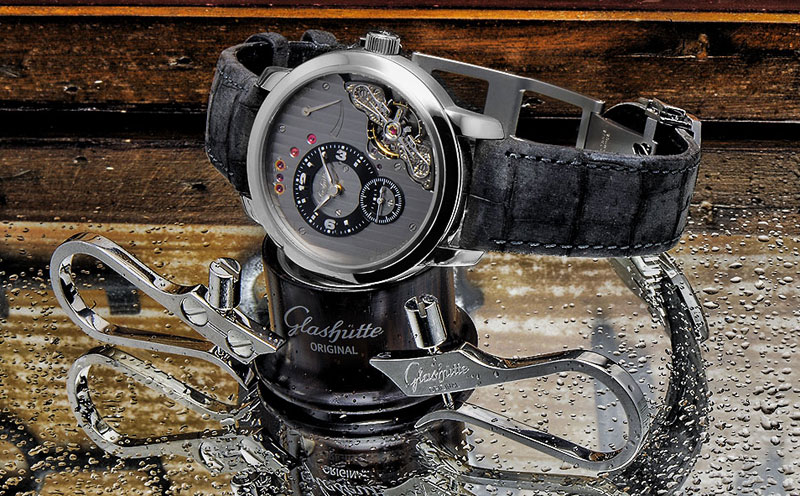
This isn’t the first time that we feature some of Jocke’s photos in our Weekly Watch Photo. It was actually the legacy of his ‘wet Sea-Dweller’ photo that inspired the Weekly Watch Photo.
Judging from the photos he shares, Jocke is a fan of German watch brands. Besides the A. Lange & Söhne 1815 that we already showed you here, he also owns a Dornblüth & Söhne (later more about this one) and several Glashütte Original timepieces, like the Panoinverse XL that we show you today. While most watches from A. Lange & Söhne and Glashütte Original are pure watch pornography on the wrist, they keep things courteous because the mind-blowing movements are movement down ‘on the wrist’. Not so the Panoinverse XL, that shows its beauty in all its naked glory.

GO’s Panoinverse XL caused quite some rippling in the waters, when it was first launched in 2008. A few years after the initial launch of a white and rose gold version, Glashütte Original launched a stainless steel model at the Baselworld fair of 2010. In the stainless steel version the sheer beauty of the Panoinverse comes together in perfect harmony. Somehow the stainless steel visually perfectly offsets to the subtle graphite/gray dial (silver dial with Ruthenium galvanic treatment). The black hour/minute and seconds chapter rings also look breathtaking in this composition with Glashütte ribbing, a GO variation on the well-known Côte de Genève striping.
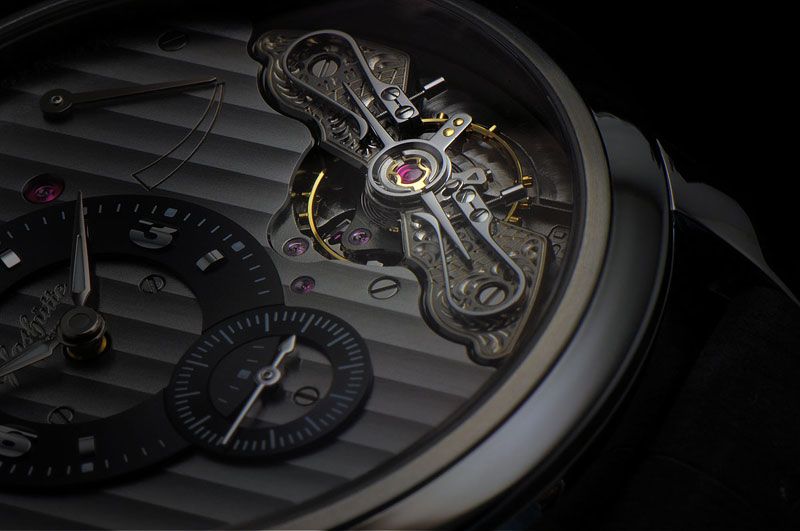
The most remarkable about it, are the two swan-neck fine adjustments, positioned on two hand-engraved balance cocks. The so-called duplex swan-neck fine adjustment was introduced by Glashütte Original in 2002 and can be found in several hand-wound and automatically wound calibers.
I first learned about a swan-nack fine adjustment, when Panerai started with see-through case backs, because their ETA/Unitas based movement featured this type of fine adjustment. The swan-neck fine adjustment allows a watchmaker to adjust the watch’ timekeeping rate even more precise then with a regular fine adjustment. I’m not sure of the duplex fine-adjustment enables a watchmaker to adjust with even greater precision, but you have to agree that it does look very good, especially on those hand-engraved balance cocks.
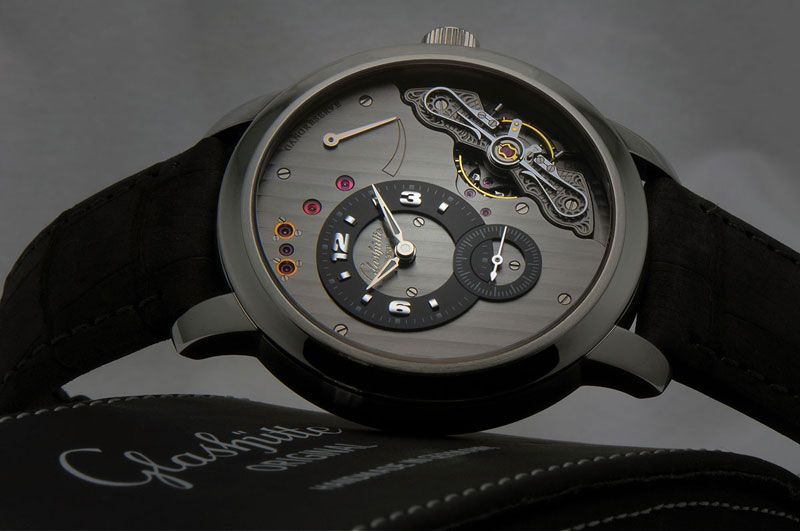
Usually a face is considered beautiful when it’s symmetrical and I guess that works for both human faces as well as for the face of a watch. However sometimes there are these beauty spots or other aberrations that somehow are considered beautiful as well. And that’s absolutely the case here; the hour/minute dial and small seconds dial are positioned off-centre and the presence of the duplex fine-adjustment are actually a little strange, but very lovely. Details like the beautiful hour and minute hands and the applied white gold hour markers also contribute to the beauty of the Panoinverse XL.
For more information about the Panoinverse XL, please visit the Glashütte Original website. Again many thanks to Jocke for letting us use his striking photos. Please visit his website Watchwallpapers for many, many more beautiful watch photos.
This article is written by Frank Geelen, executive editor for Monochrome Watches.

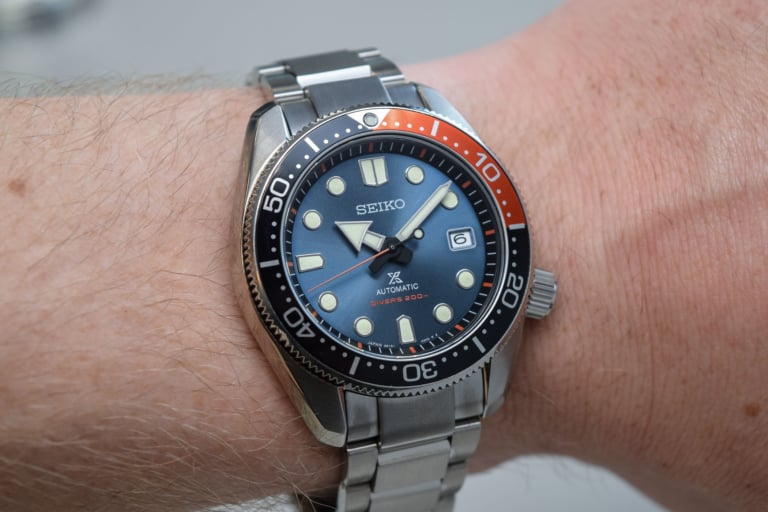
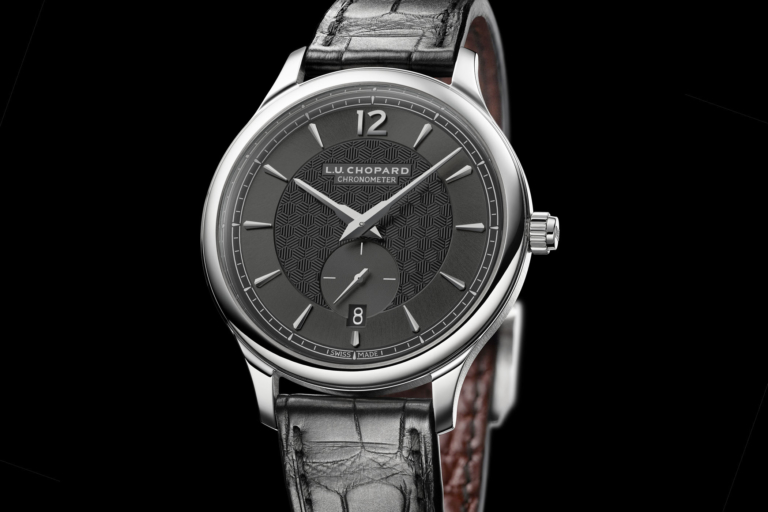
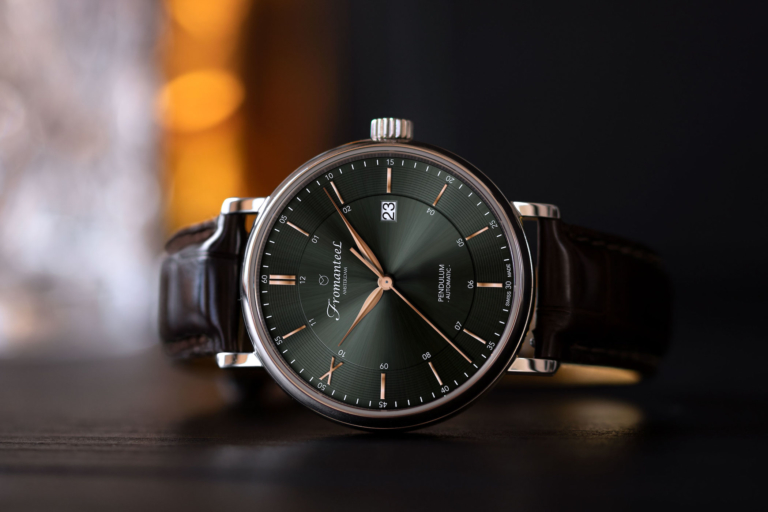
1 response
I would assume the double swan neck adjusters help somewhat with keeping the rate adjustmant in the correct place in case of shocks and such that might cause a single swan-neck adjuster to loosen slightly.